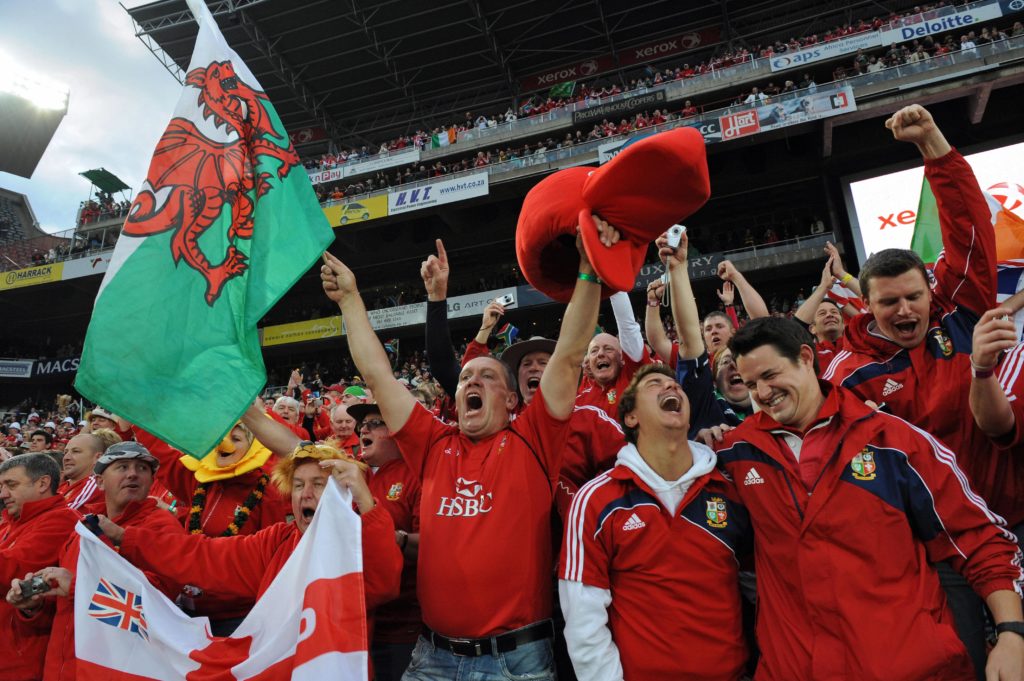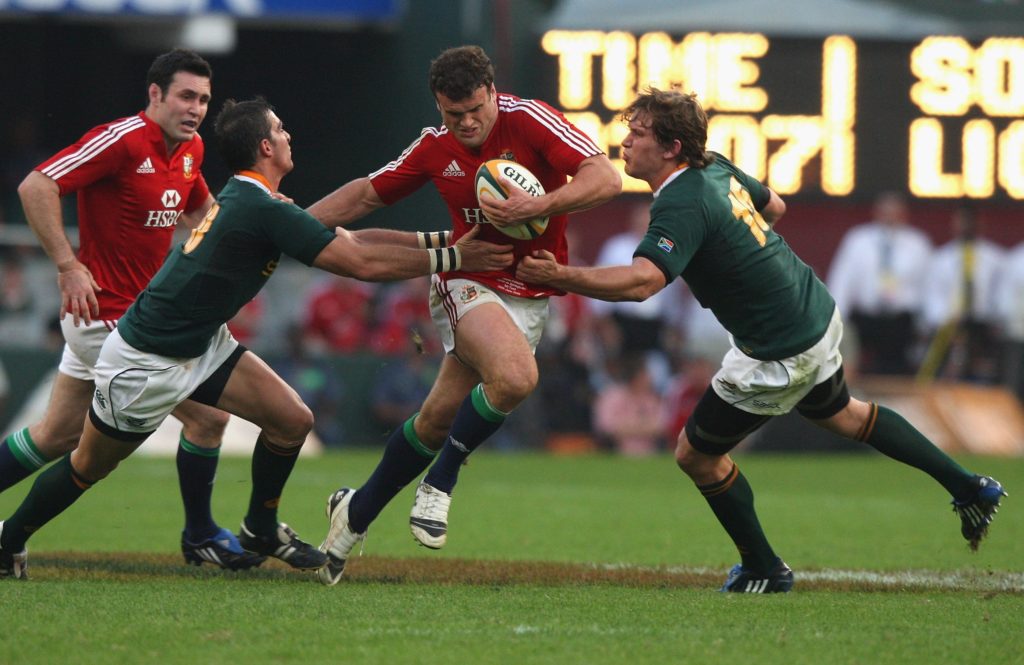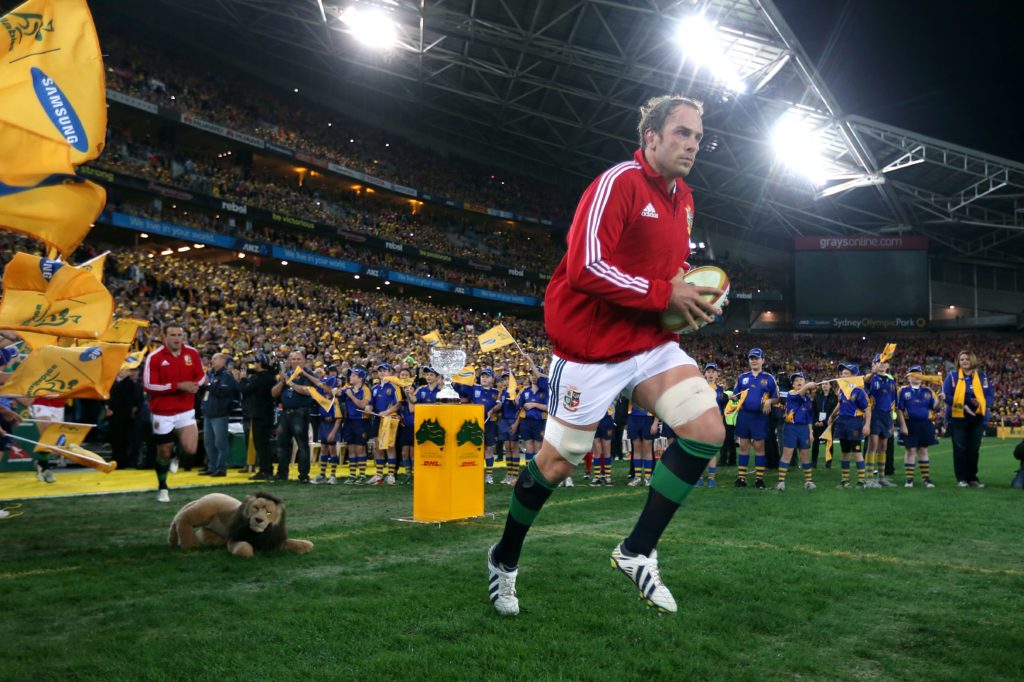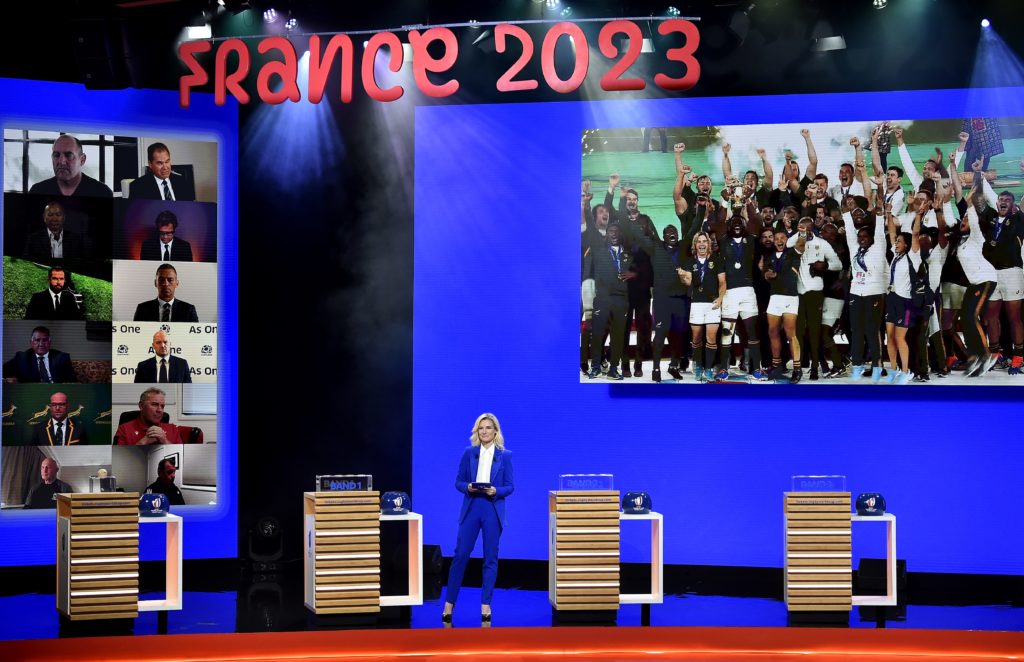As an early devotee of Charlie Brooker’s dystopian Black Mirror series, I loved the vivid worlds it conjured, while simultaneously taking comfort in its utter implausibility. Most of the plot lines that centred on the collapse of civilised society were disturbing and thought-provoking, but they were all entirely fantastical. They emerged from the twisted imagination of someone who’s read too much science-fiction, and probably drinks too much coffee.
Having lived through 2020, our minds are now more readily accepting of outlandish scenarios. Empty post-apocalyptic city centres, entire populations compelled by law to stay imprisoned in their own houses, the potential for social media to alter existing realities, a Lions series against South Africa being played in Australia without travelling fans.
The latest of these previously unthinkable realities emerged over the weekend as the Sunday Times reported that the Australian Rugby Union (Rugby Australia) had volunteered to host the 2021 Lions series. A decision hasn’t yet been made, but feasibility studies are being drawn up, and to some it appears to the best worst option available.
At first glance, it seems a decent solution to an impossible dilemma, until you realise that travelling fans won’t, in all likelihood, be allowed to attend. Australia has all but closed its borders to foreign travellers, so this proposal is based on ex-pat British, Irish, and South African supporters filling the stadiums.
There’s no doubt that sport remains a glorious triviality in a year that’s witnessed death and misery on an almost unimaginable scale, but it’s a cruel irony that the destination for this year’s Lions tour is a country that has an aggressive variant of Coronavirus, and little evidence of a coordinated vaccine rollout.

Those facts alone have killed off any prospect of the tour happening in its original guise. The two alternatives proposed since – a postponement to 2022, or the relocation of the “tour” to the UK – have received lukewarm support. The former, because of its potential to disrupt the home unions’ preparation for the World Cup in 2023, the latter for its potential to undermine the very concept of the Lions.
Sporting organisations, like businesses the world over, are haemorrhaging money. Hosting the series in Australia will allow a fountain of income from TV rights, tickets sales, sponsorship, and merchandise to gush into the coffers of the SARU and the home unions. Rugby Australia – somewhat altruistically – have agreed to charge only costs. Going down under could literally save South African rugby from going under.
Returning to the concept of the Lions, it’s a tradition that defies all logic and sense. Every four years, 30,000 fans travel halfway around the globe to follow a team that only exists for those few months. Think about that for a second. What are the chances that a diehard Scarlets fan would travel 400 miles to Glasgow, to watch their side play on a Saturday night? But a Wales fan would travel 12,000 miles to New Zealand to watch, and cheer for, a team that contains Englishmen. It’s absolutely, gloriously bonkers, and that’s why we love it.
Internally it’s a real firefight. Customers are going to expect 100% refunds. We’ve incurred significant project costs of £200,000, which are irrecoverable. We’ve also made significant investments in South Africa on hotels and inventory, most of which is transferable to new dates, and the bulk of which is refundable if the pandemic doesn’t allow us to go there
Mark Gardner, CEO MSG Tours
For many it’s a lifetime ambition to follow a tour. Fans save for years for the opportunity to do so. And in the rush to find a solution to this unprecedented dilemma, there’s a danger those fans are being forgotten about.
Mark Gardner is the CEO of MSG Tours, one of several companies running trips to South Africa. Few have had their ear as close to the ground as he during this period, and he fears not only for the fans, but for the future of his business.
“Internally it’s a real firefight here. Customers are going to expect to have 100% refunds. We’ve incurred significant project costs, to the tune of £200,000, which are irrecoverable. We’ve also made significant investments in South Africa on hotels and inventory, most of which is transferable to new dates, and the bulk of which is refundable if the pandemic doesn’t allow us to go there. But there is still a decent percentage we’re going to have to get on our knees for. It’s a case of stemming the bleeding, but of course in the meantime, we’re not making any money. For the whole travel industry, there are going to be some significant casualties.”
Jamie Roberts was Man Of The Series when the Lions fell agonisingly short on the last Lions tour of South Africa, and was part of the series-winning side in Australia four years later. He’s a Lion to the core, and worries about the effect all of this will have on the Lions – a concept that has become increasingly vulnerable in a professional world.
“The biggest risk here for the Lions is reputational damage. If they played a series in an unconventional way – whether that’s in the wrong country, or in empty stadiums – is that going to be better than having no series at all? That’s the question the board has got to answer.”

Roberts, as a traditionalist, fears that a series lacking the vital ingredients that make a Lions tour such a heady brew could dilute the concept in the longer term. Cancelling it outright would be an unpalatable choice for the bean counters, but it would go some way to preserving the mystique.
“South Africa was my first Lions tour, and culturally it’s the most unique experience. Their love for rugby and that experience when you travel there makes it unlike any other tour you’ll ever go on. I would like for them to exhaust every possible avenue for it to be played in South Africa. If it has to be played this summer because of calendar issues, then somewhere like Australia may be the answer, but they do have to weigh up that reputational risk.”
It would be great for Australian rugby because it gives them a shot in the arm that they really need. Regardless of what happens with ticket revenue, they’ll be staging a global rugby series that’s going to generate a big amount of interest in their country.
Jamie Roberts on the controversial ‘Australia option’
Rugby Australia’s offer is not entirely born of altruism. As a sport constantly competing with the more popular codes of Rugby League and Aussie Rules, Rugby Union has to be creative in thinking up ways of capturing the imagination of fans. This, according to Roberts, would be a PR win.
“It would be great for Australian rugby because it gives them a shot in the arm that they really need. Regardless of what happens with ticket revenue, they’ll be staging a global rugby series that’s going to generate a big amount of interest in their country.”
Mark Gardner’s assessment of Rugby Australia’s motives is understandably more cynical. “The ARU have been in a terrible place for ten years, they’ve had poor leadership, horrendous HR issues and a real lack of drive and empathy at the top. And what they’re doing is a classic business manoeuvre. You can see it – hearts and minds. They’ll call in that favour, there’ll be some side deals done on this. But where does it leave the people who so desperately wanted to travel?”
Rugby Australia want to host the 2027 World Cup, and their role in potentially “saving” the Lions series would not do their bid any harm, but as Gardner outlines, a solution that could bolster the bank accounts of the Unions involved could potentially bankrupt a company like his, and many others who operate on a similar model.

“There’s no business interruption protection for us, no pandemic insurance. We’re ruthlessly exposed. We’ve not been allowed to trade since March of last year, and its unlikely we’ll be delivering any form of travel service until 2022, so we’ll have lost two years’ worth of income. This project has cost us £200,000 so far. We’re going to have to write that off. Then we’ve got to try to get the customers’ money back from South Africa, where it’s gone as deposits etc. The supply chain contains about 32 different suppliers – dozens of hotels, seven “class A” events at restaurants and vineyards, five charities, three game reserves, and we were chartering a flight to Eswatini. It’s scary how many contracts we have, and how many of these have had the 5%s, the 10%s, and the 15%s. And that’s without mentioning flights and staffing costs. It’s bloody stressful. It’s a perfect storm to test any company, and we’re really nervous.”
The Lions board will meet this week to discuss the offer from Rugby Australia. The nuclear option of complete cancellation is no longer on the agenda. Gardner is keen to stress that he knows those who’ll gather around that virtual boardroom table are “good people, trying to do the right thing” and acknowledges that the process is as difficult as it is delicate, “It’s like a maze. Every path you go down, there are multiple other directions to choose between.”
I’m having to appeal personally to our clients to ask them for their loyalty. We had seven hundred customers signed up to our Lions trip. I’m on the phone asking our sixty-odd customers in places like Taibach and Cwmavon, ‘if this goes nuclear, will you keep your money in the business?’
Mark Gardner
He understands that public health and money are the two key drivers, but is appealing to the power brokers not to “bite the hand that feeds them”. Behind the headlines are thousands of fans worried about the money they’ve already spent, and companies like his who are fearing the worst. The Lions board will be discussing the issues in broad strokes; the conversations he’s having are necessarily more intimate.
“I’m having to appeal personally to our clients to ask them for their loyalty. We had seven hundred customers signed up to our Lions trip. I’m on the phone asking our sixty-odd customers in places like Taibach and Cwmavon, ‘if this goes nuclear, will you keep your money in the business?’”
If he can persuade them not to claim refunds, but to keep the faith that they can offer a comparable trip in the near future, the prognosis may not be so bleak. “I’m suggesting we take them on a Wales trip to South Africa next summer, and as I’m saying that I’m gripping the wooden table hard, and hoping that the WRU and the South African Rugby Union can announce that that’s happening. It saves us pulling the plug out of the bath.”
It goes without saying that Gardner’s preferred outcome would be for the Lions tour to be postponed for a year, meaning his situation would be downgraded from the potential collapse of his business, to an administrative headache.

The major obstacle is the reticence of national coaches to agree to a tour that would hamper their preparation for the World Cup in 2023. It’s a position Jamie Roberts has empathy with.
“When these international teams are making 2-3 year plans building into a World Cup, those tours are huge. I toured New Zealand in 2010 before the 2011 World Cup, and we went to South Africa the year before the World Cup in 2015. They were massively important tours and Warren (Gatland) put a lot of stock in them. He wanted to manoeuvre things so the lads could have that experience. They’re a massive part of planning.”
If the Lions board was to accept RA’s invitation, they’d have to agree to the quarantine rules which would see the players isolate for 14 days on arrival. This would lengthen the tour by a fortnight; something the Premiership clubs would be unlikely to countenance. Absorbing those two weeks into the existing itinerary would mean cutting a number of matches from an already truncated tour. If these issues can’t be resolved, it appears the two remaining options would be to proceed with the original tour behind closed doors, or to relocate it to the UK Ireland in the hope that some crowds may be allowed to attend come the summer. It’s understood that a third contingency – that the tour go ahead in South Africa in February and March of 2022 – has also been discussed, but it’s more of a long shot at this stage.
2020 has been the most discombobulating of years. It’s behind us now, but its after-shocks continue to resonate. There is no right answer to this dilemma, but Mark Gardner, speaking as a fan as much as a business owner, put it in the simplest terms.
“We’ve waited twelve years since the last tour to South Africa”, he says. “We can surely wait another one?”
More stories from Ross Harries
If you’ve enjoyed this article, please share it with friends or on social media. We rely solely on new subscribers to fund high-quality journalism and appreciate you sharing this so we can continue to grow, produce more quality content and support our writers.


Comments
Join free and tell us what you really think!
Sign up for free